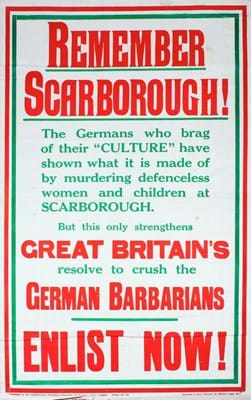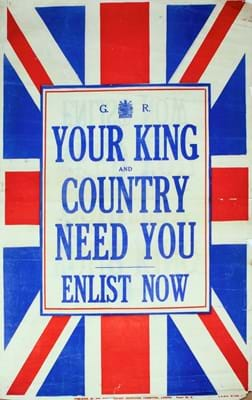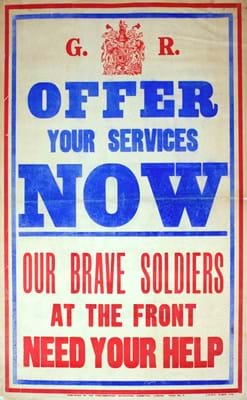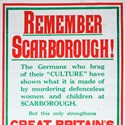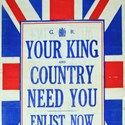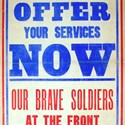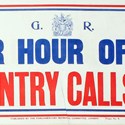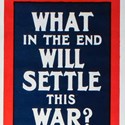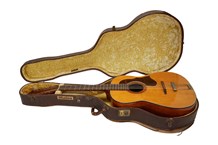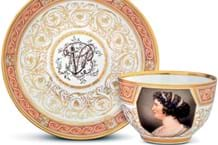Rather than a travel poster urging memories of ice cream dropped on pavements, fish and chips stolen by pilfering seagulls and of course driving wind and rain huddled on a deckchair, this is in fact a British First World war recruiting poster.
So why Scarborough? Well, it’s easily explainable actually. The 1914 design recalls the Imperial German Navy bombardment of the North Yorkshire seaside town just before Christmas that year.
The rare original recruiting poster was discovered at an antiques valuation day and is now on offer at The Canterbury Auction Galleries on October 3-4 with an estimate of £300-500.
The Parliamentary Recruiting Committee poster, headed ‘Remember Scarborough Enlist Now’, is among a group of five Great War posters to be offered in a sale of fine art, antiques and collectors’ items.
Rallying cry
On the serious side, the Scarborough raid caused alarm but also outrage and was a suitable rallying cry (and a cause of concern for Brits used to Royal Navy dominance).
The bombardment of the coast just after 8am on December 16 was the first time bombs had fallen on Britain. Other targets were Hartlepool and Whitby and of nearly 600 casualties in total, mainly civilian, 137 were killed.
In Scarborough, for around an hour and a half, the German battleships Von der Tann and Derfflinger sent shell after shell into the town, wreaking havoc and killing 18 and injuring dozens more.
Scarborough Castle, the Grand and other hotels and guesthouses, three churches, shops and family homes in the Esplanade were all damaged, while terrified locals fled for their lives, crowding railway station platforms and clogging roads leading out of town. Four people died in one house alone.
A report in the Scarborough Pictorial, published on December 23, 1914, a week after the attack, quoted one local man who described how he could see the German sailors moving around on deck as the bombardment began.
“In an instant beds and furniture were mangled remnants and ruins. The room was left in indescribable confusion, and holes were torn in walls and articles in all directions,” he said.
From Scarborough, the battleships moved on to shell Whitby and Hartlepool.
Outraged response
The attack caused outrage among the public and British press, many at home and in most neutral countries, citing it as a war crime because the Germans had signed the 1907 Hague Convention agreeing not to attack an unfortified coastal town. Winston Churchill publicly called the Germans “baby killers”.
It also proved to be a catastrophic miscalculation by the Germans, fuelling a huge British recruitment drive in which thousands more young men joined up to fight, spurred on by posters like the one to be sold. It reads: ‘The Germans who brag of their ‘culture’ have shown what it is made of by murdering defenceless women and children at Scarborough. But this only strengthens Great Britain’s resolve to crush the German barbarians. Enlist Now.’
By their ephemeral nature, posters dating from the First World War can be rare. They were taken to a valuation day at The Canterbury Auction Galleries by a local collector of militaria.


